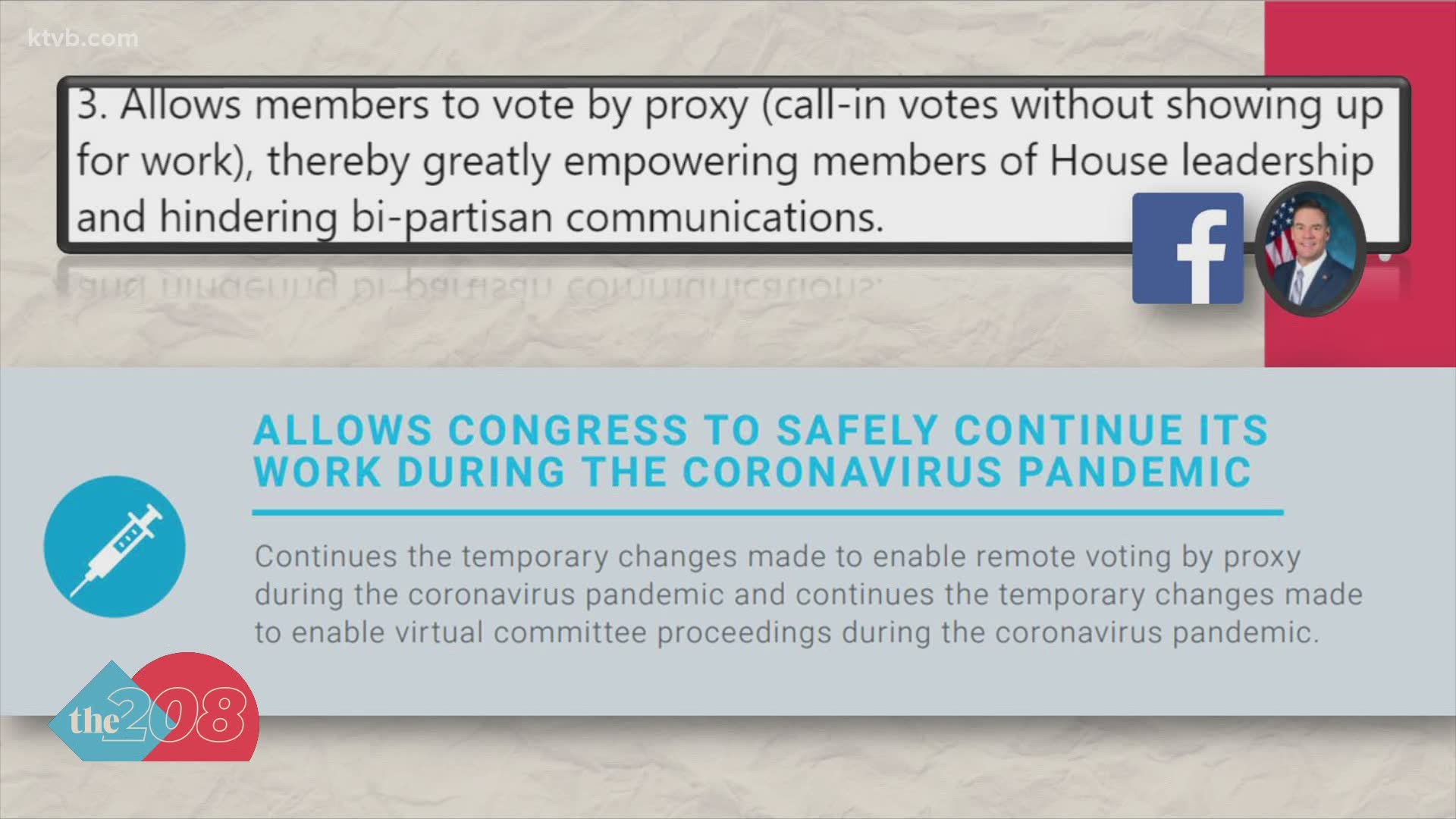BOISE, Idaho — On Jan. 3, lawmakers of the 117th Congress were sworn in. On Monday, one of the members of the House of Representatives issued their first order of business: to vote on the House rules.
On Jan. 1, House Speaker Nancy Pelosi (D-California) released the proposed rules, which are supposedly designed to respond to members' requests.
However, Rep. Russ Fulcher (R-Idaho), who is not in his second term, was not too pleased with some of them, according to a Facebook post from him on Monday morning.
"For the 1st time in US history - Here are a few of Speaker Pelosi's "US House rules" for the next 2 years (I'm not making this up)," Fulcher wrote. He then listed the five he takes issue with.
Despite Fulcher's statement, this is not the first time that rules have been put in place in Congress; they have been part of the process since 1789.
It may, however, be the first time the stakes have been this high, where rule changes meant to help the process are being perceived by some as actually hindering it.
The first rule Fulcher mentioned would "Effectively kills the ability to debate an amendment to a bill on the House floor, restricting the minority party from having a voice."
In the past, the minority in the House was afforded a vote on most bills called the "Motion to Recommit" (MTR). Essentially, it was used as a procedural vote to kill legislation by sending it back to committee.
Democrats asked that MTR be eliminated.
If passed, this would allow the minority to demand a vote on returning the bill to committee, but they would be unable to try to add amendments at that point.
The second rule, according to Fulcher, "Censors free speech of members of congress by creating an ethics violation for information shared online, even in unofficial capacity, deemed unfounded by others."
According to the rule, this includes "manipulated media, including photos and videos, without making a reasonable attempt to determine if that media is distorted or manipulated."
This would include tweets and other social media posts that convey fake media.
The third rule will "Allow members to vote by proxy (call-in votes without showing up for work), thereby greatly empowering members of House leadership and hindering bi-partisan communications."
The rule is meant to allow Congress to "safely continue its work during the Coronavirus pandemic". It is a temporary change that will allow lawmakers to take part in committee proceedings virtually and vote remotely by proxy, as many companies continue to do during the COVID-19 pandemic.
Many elected leaders, including Idaho Gov. Brad Little, have asked people to work remotely if possible to help slow the spread. However, Idaho's state lawmakers will not have that option when they return to the statehouse on Jan. 11.
The final rule, likely the most controversial rule, would eliminate "any reference to gender (ie: father, mother, etc.) in House documents, thereby de-valuing family structures."
This rule would require all pronouns and familial relationships to be gender neutral to "ensure we are inclusive of all members, delegates, resident commissioners and their families- including those who are non-binary."
In short, terms like Chairman would be changed to "chair".
The rules put forth by Speaker Pelosi passed the House 217-206.
Join 'The 208' conversation:
- Text us at (208) 321-5614
- E-mail us at the208@ktvb.com
- Join our The 208 Facebook group: https://www.facebook.com/groups/the208KTVB/
- Follow us on Twitter: @the208KTVB or tweet #the208 and #SoIdaho
- Follow us on Instagram: @the208KTVB
- Bookmark our landing page: /the-208
- And we also turn each episode into a podcast or Podbean
- Still reading this list? We're on YouTube, too:

